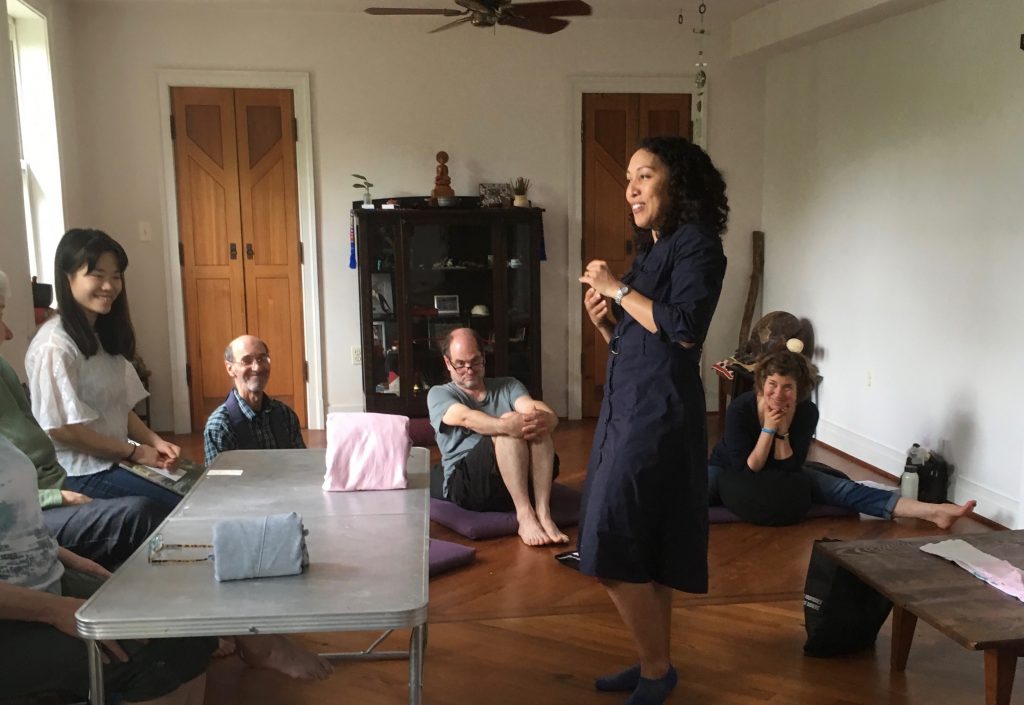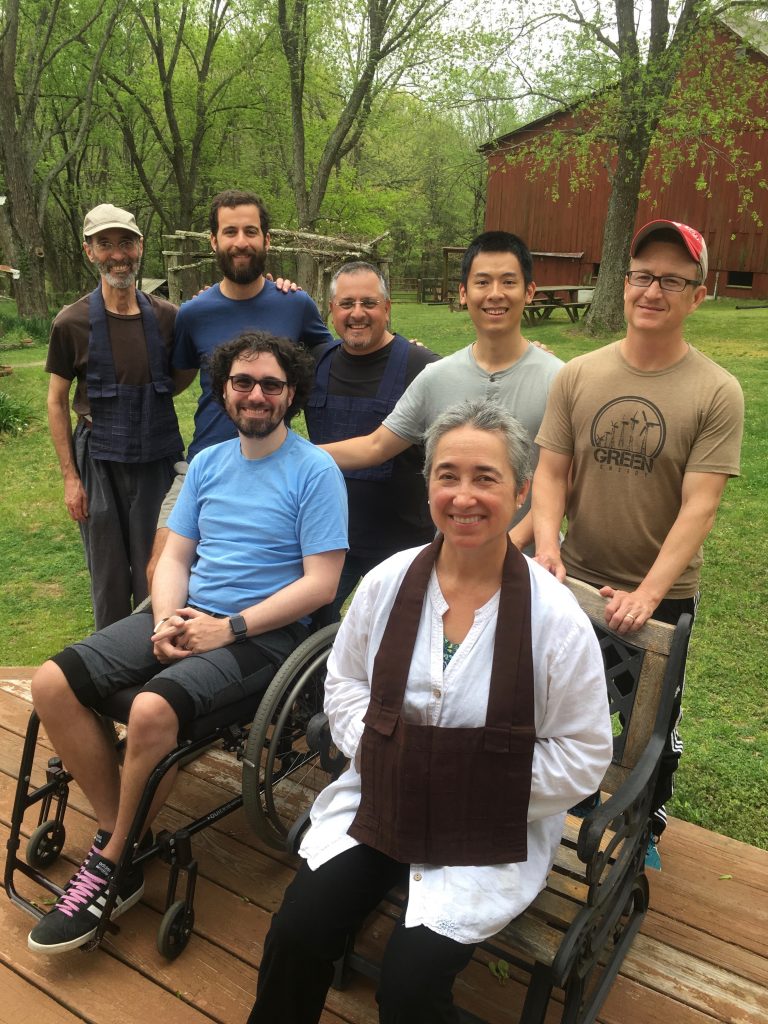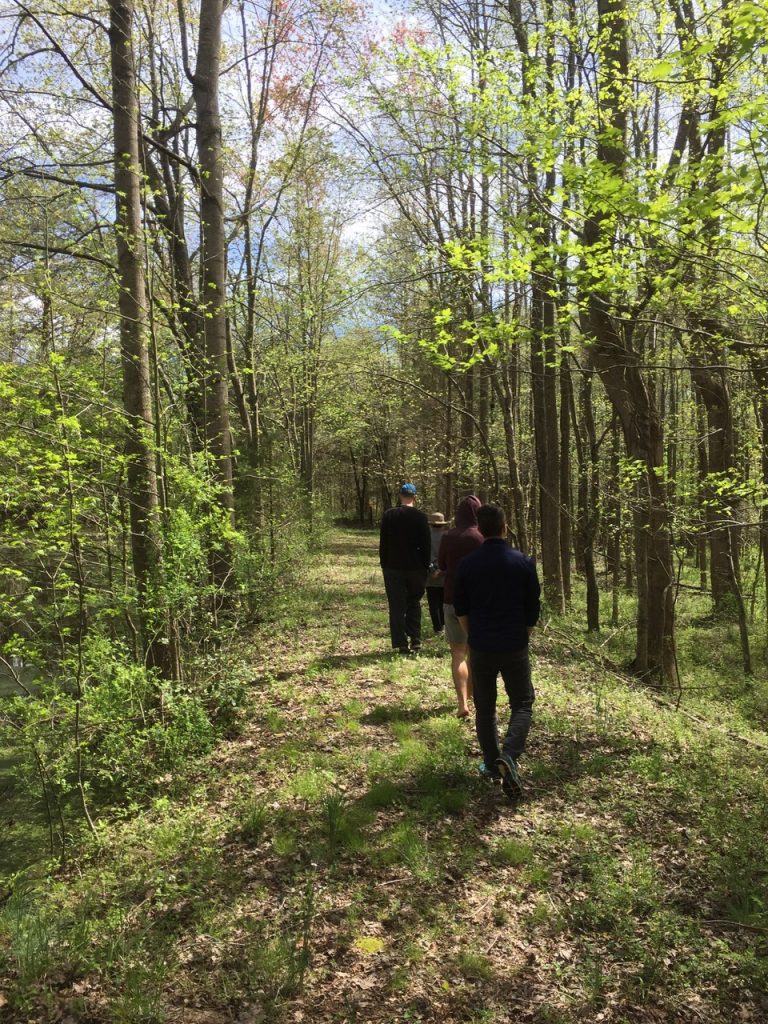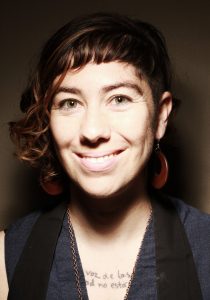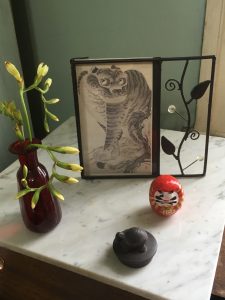Before joining the morning procession to the memorial site near the Ft. Sill Gate we were gathered for a photograph
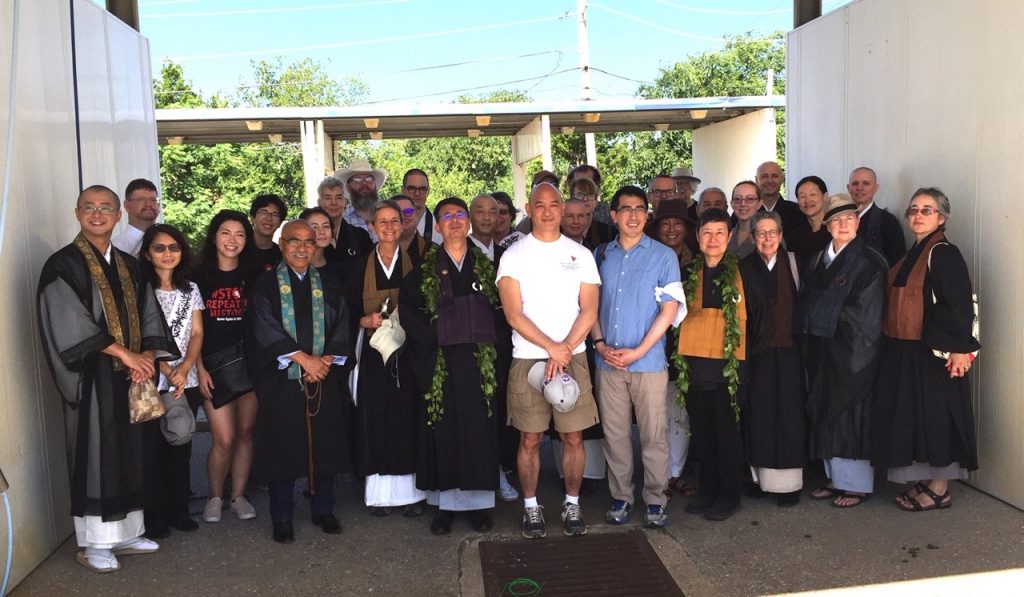
Walking in the procession (Buddhist Clergy to the right in the below photograph)
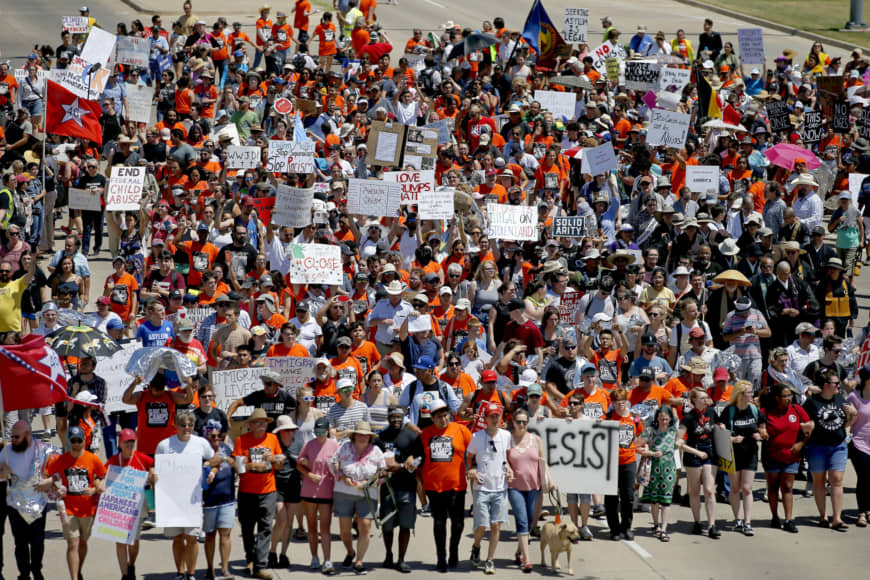
Later in the day at Shepler park…
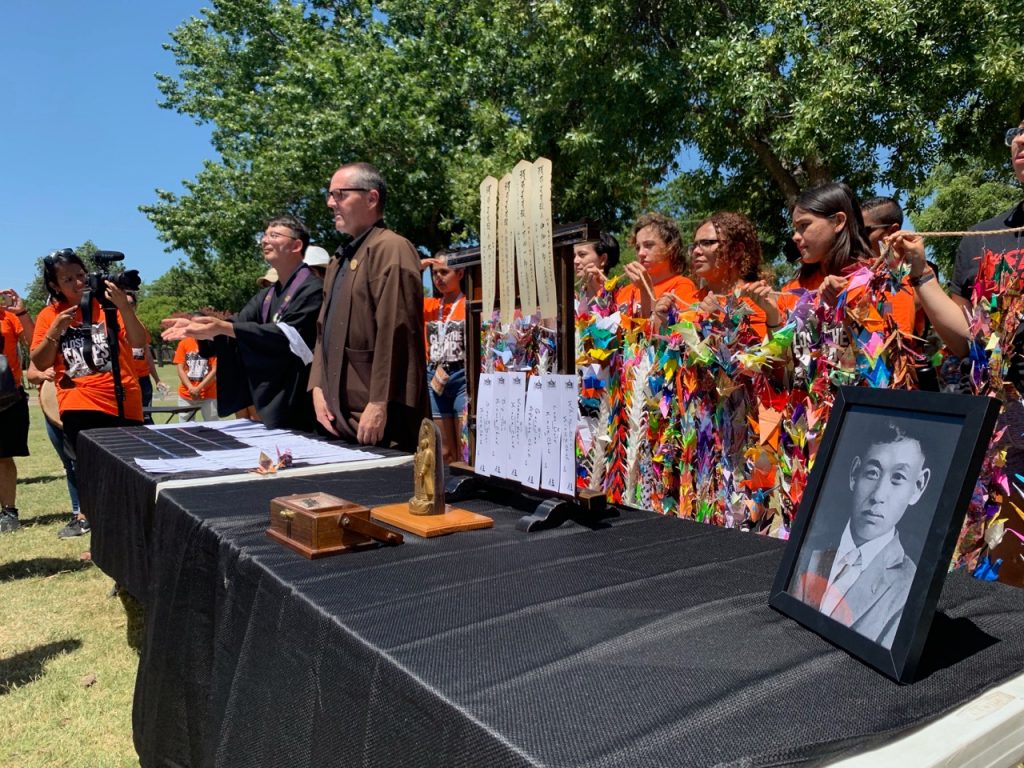
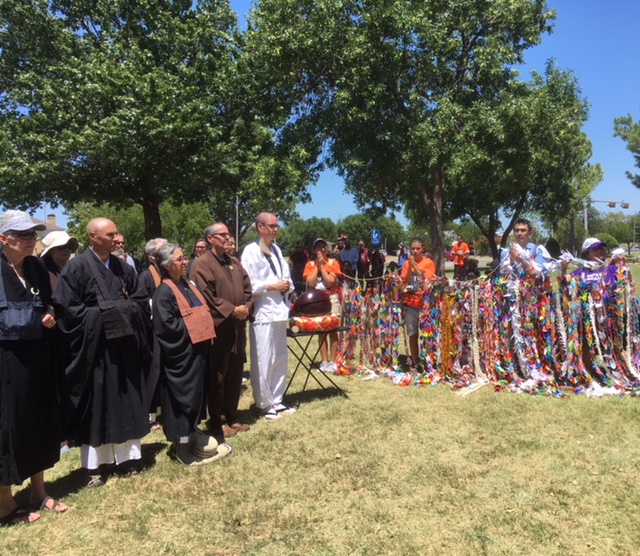 Tsuru (paper peace cranes) being offered in the second memorial service of the day to those who have suffered or were killed at Ft Sill Army Base in the past. The names of Indiginous Indian leaders were remembered. The names of Americans of Japanese decent were remembered who died at Ft Sill interment during WWII and the names of the 10 children who have died in I.C.E custody or trying to get safe passage into the U.S. during the past year were also remembered thus linking past to present.
Tsuru (paper peace cranes) being offered in the second memorial service of the day to those who have suffered or were killed at Ft Sill Army Base in the past. The names of Indiginous Indian leaders were remembered. The names of Americans of Japanese decent were remembered who died at Ft Sill interment during WWII and the names of the 10 children who have died in I.C.E custody or trying to get safe passage into the U.S. during the past year were also remembered thus linking past to present.
Those gathering at the park (more than two hundred mostly youth leaders) were invited to write the names of someone they mourned and remembered. It was heart wrenching to see so many young people writing names and walking to the altar to offer the names for remembering. So much suffering was being processed in this second memorial service of our day. All the priests were struggling to remain steady witnessing this gravity, this solemn expression of so many young people’s life experience.
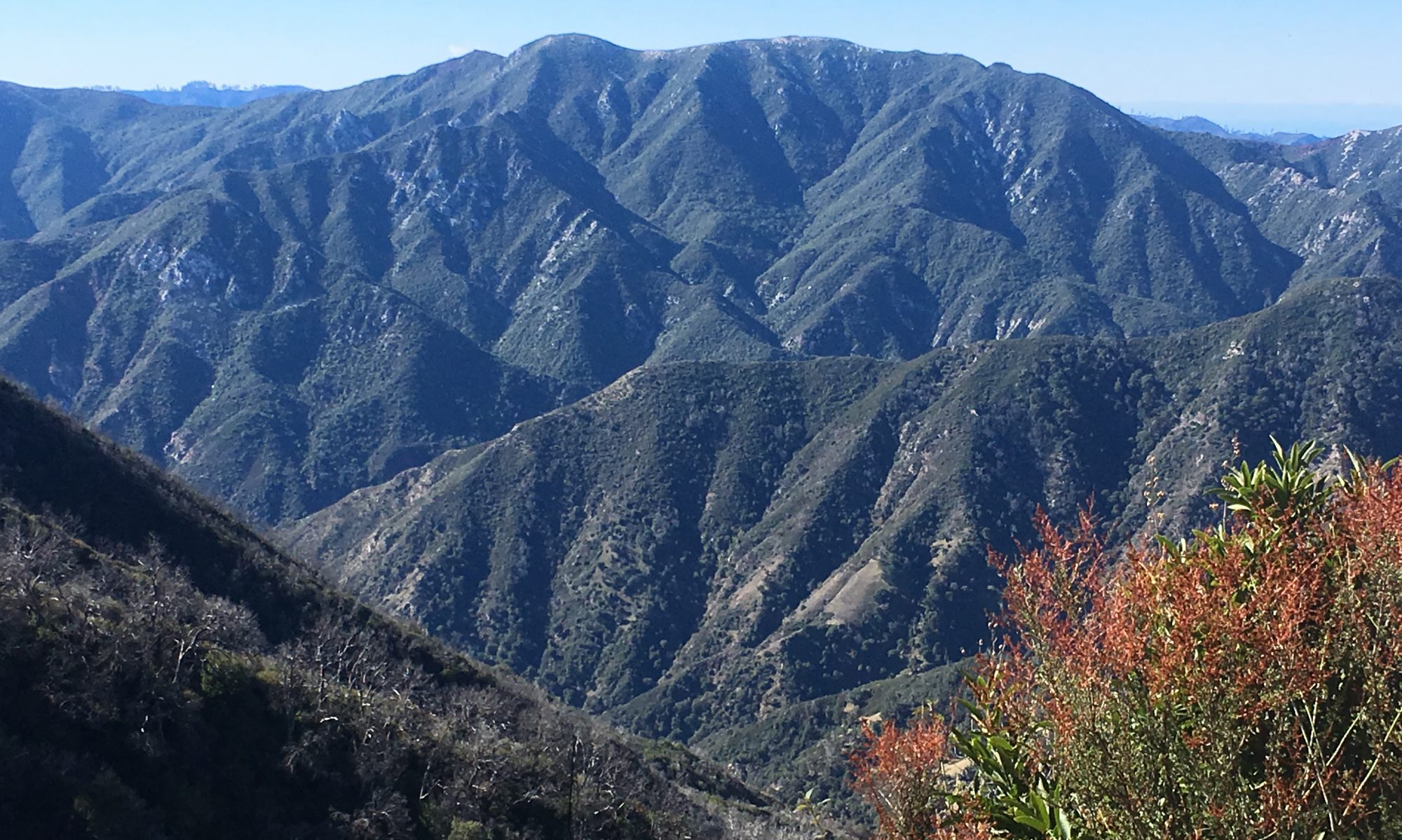
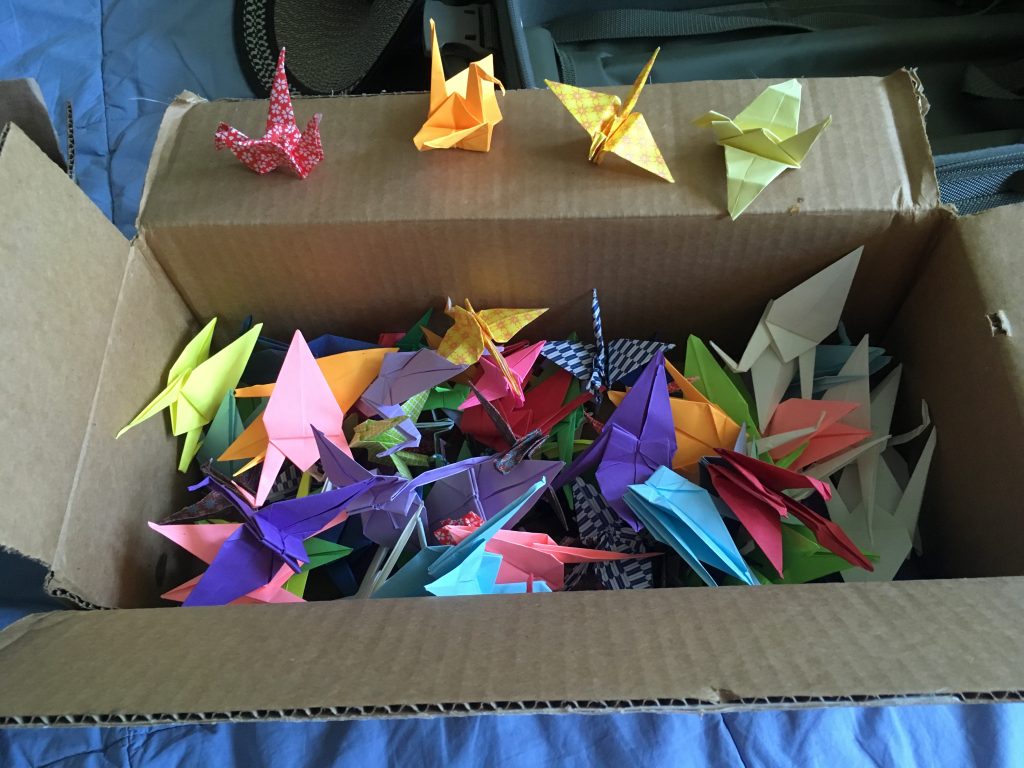
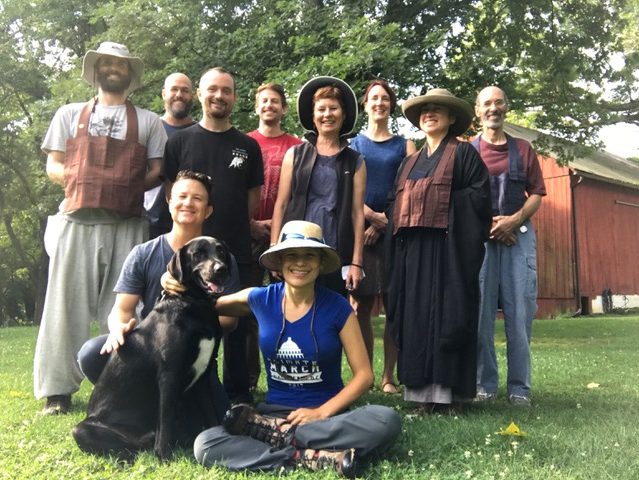
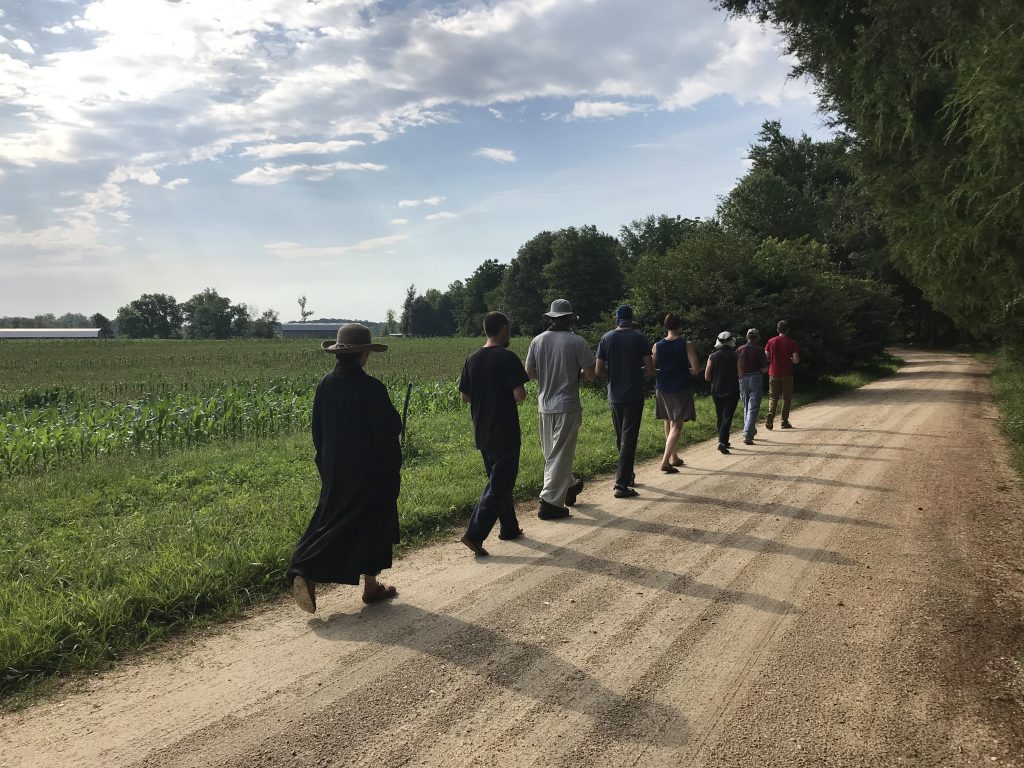
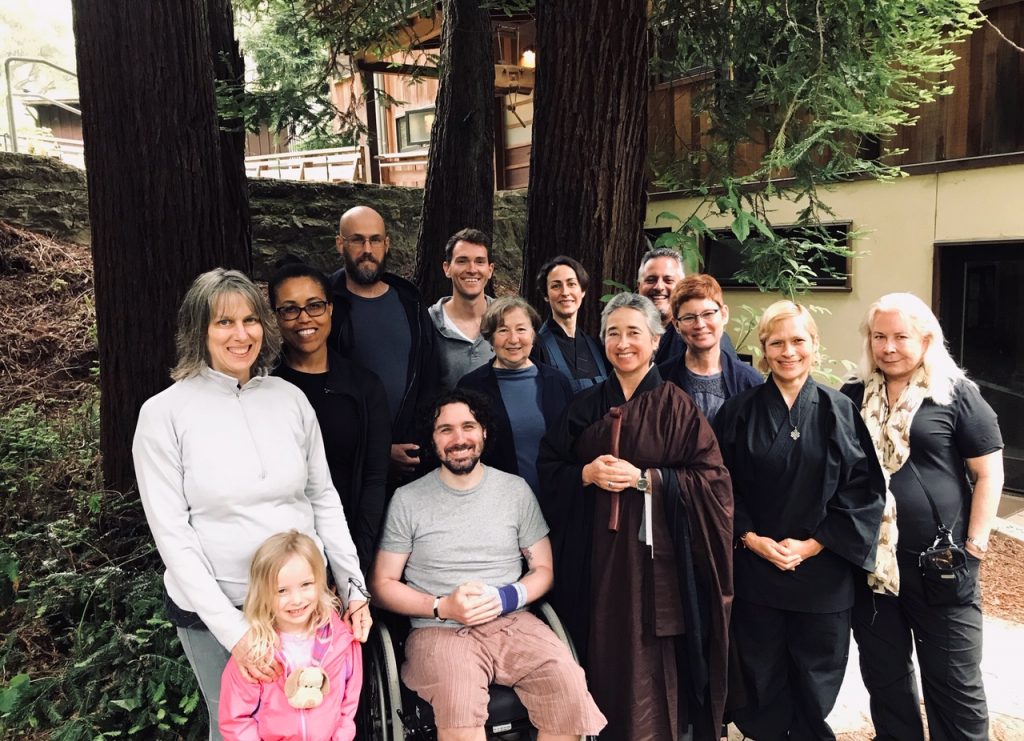
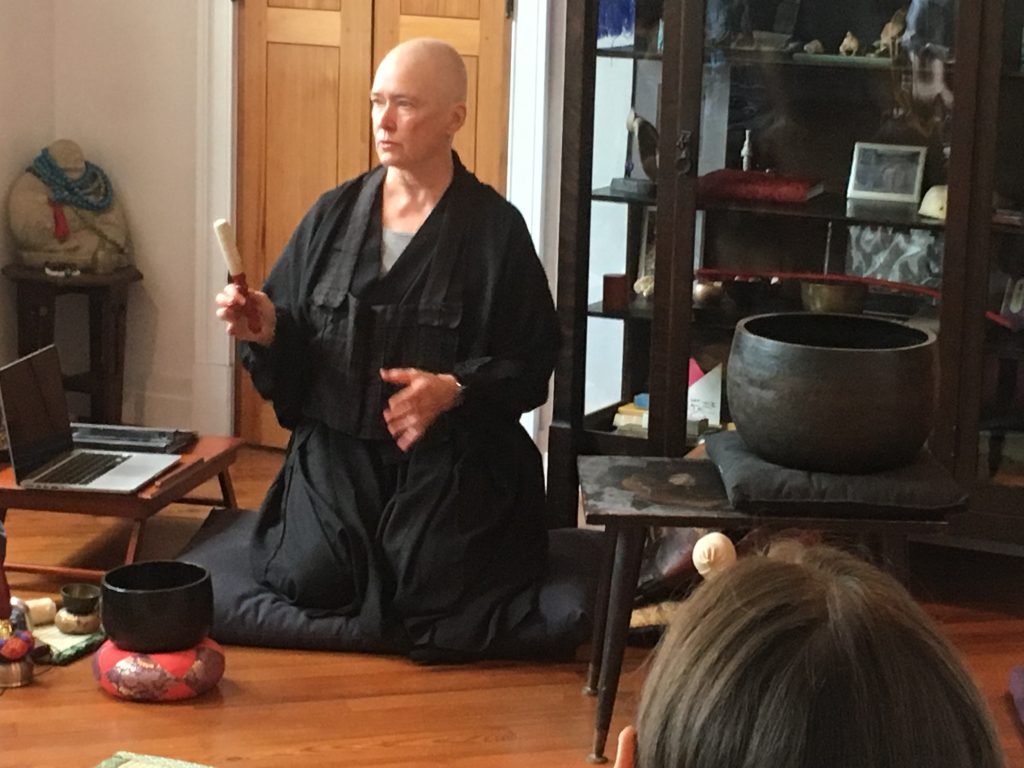 Rev Shokuchi Deidre Carrigan offering training for All Beings Zen Sangha Doanryo
Rev Shokuchi Deidre Carrigan offering training for All Beings Zen Sangha Doanryo